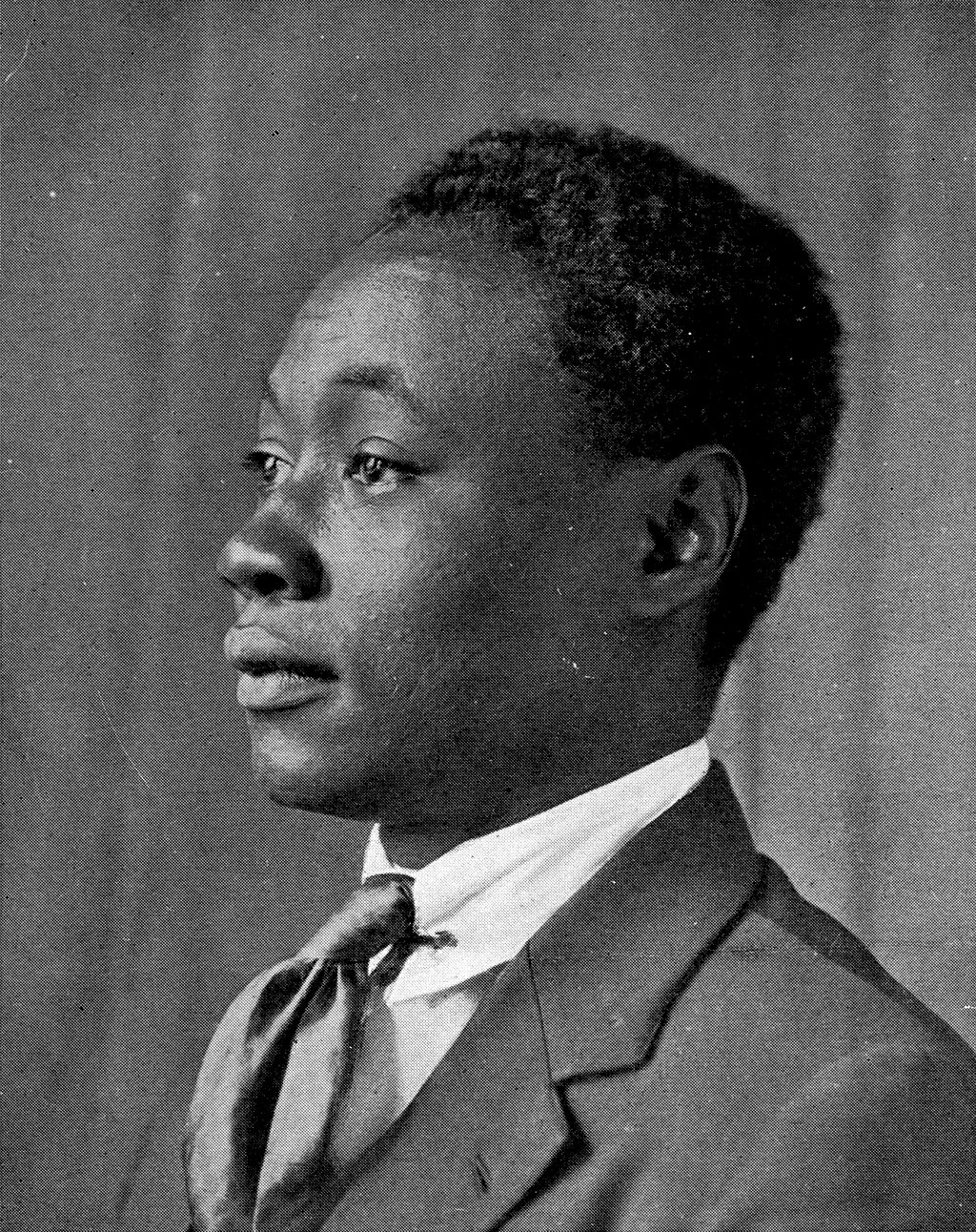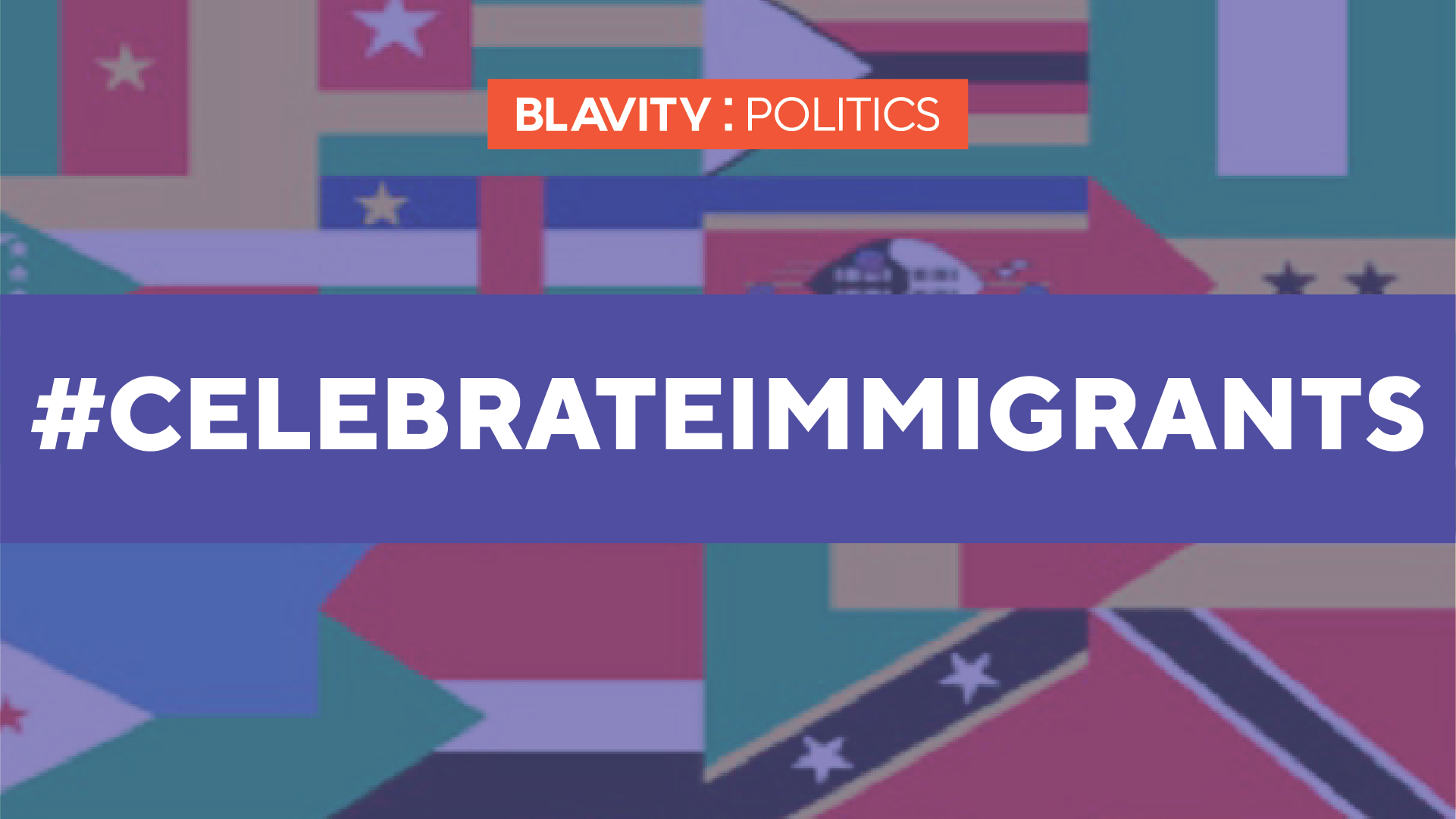Black immigrants and their children have long been a part of the fabric of communities across the United States from the first-generation “Lift Every Voice and Sing” writer James Weldon Johnson to the co-founder of the Black Lives Matter movement Opal Tometi, and many in between.
Historical and contemporary engagement among immigrant, native and Black communities abroad have broadened our understanding of Black experiences under interlocking systems of oppression, including colonialism, racism, patriarchy, heteronormativity, etc. Most importantly, these intra-community conversations have strengthened strategies of resistance and continue to expand our ideas of collective Black freedom.
Here a few notable Black immigrants (and first gens!) over the 20th century, who have struggled for the cause of Black freedom here in the United States as politicians, artists, activists and much more.
1. Marcus Garvey

Photo credit: Getty Image
A well-known Pan-African leader, the Jamaican-born nationalist left an indelible mark on U.S. history. Garvey immigrated to the United States in 1916, inspired by the work of Booker T. Washington. In 1917, Garvey co-founded the Universal Negro Improvement Association (UNIA) with activist and wife, Amy Ashwood Garvey. His experience in the West Indies, Central America, the U.K. and the U.S. informed his deep-seated belief in Black self-determination. To date, the UNIA is the largest black organization in history. The FBI targeted Garvey and eventually detained and deported him, which crippled the movement. However, much of his legacy has been preserved, thanks to the tireless work of his second wife, activist and writer, Amy Jacques Garvey.
2. Laura Adorkor Kofi

Photo credit: Facebook
Born in Ghana, Kofi moved to the United States in 1918 after she believed she received a divine message to teach and bring a special word to African American communities. She joined the UNIA and became an accomplished national field director. While touring the deep South, she attracted massive crowds into the tens of thousands and became one of the most popular UNIA leaders (other than Garvey himself). Eventually settling in Florida and beginning her own denomination, she preached about Black pride and Black liberation. She was assassinated by a Garvey supporter while preaching in 1928. Her supporters built a settlement in Jacksonville to honor her legacy called “Adorkaville.”
3. Claudia Jones

Photo credit: Getty Image
Jones is a lesser-known political figure; however, the Trinidadian activist is one of the most important leaders of the 20th century. After immigrating to the United States as a child, she later joined the Communist Party and was part of a critical group of Black Communists who pushed back against U.S. imperialism and forced the consideration of race and gender within critiques of capitalism. As a writer, she amplified Black women’s exploitation as Black people, women and workers, as explained in her essay, An End to the Neglect of the Problems of the Negro Woman! In the increasingly hostile anti-communist McCarthy era, Jones, who had long been tracked by the FBI, was detained and later deported under the Smith Act. Jones moved to London, where she joined the fight for civil rights in the U.K. Jones’ legacy lives on in many activists, including Angela Davis.
4. Kwame Ture (aka Stokely Carmichael)

Photo credit: Getty Image
Also from Trinidad, Carmichael is remembered as one the most galvanizing voices of the Civil Rights and Black Power era. After immigrating to the United States as a child, he became active in the Civil Rights movement as a student at Howard University, joining the Student Nonviolent Coordinating Committee. The devoted anti-colonialist and Black Panther Party chair helped popularize the refrain “Black Power!” Under pervasive surveillance from the U.S. government, Carmichael and his wife, South African singer Miriam Makeba, left the United States and settled in Guinea with support from Pan-African leader and President Sekou Toure. Carmichael’s activism motivated a generation of young activists in the United States, who continued the fight in the post-Civil Rights era.
5. Miriam Makeba

Photo credit: Getty Image
A South African singer who was affectionately known as “Mama Africa,” Makeba introduced the world to African music. Her burgeoning career brought her to the United States to work with the Jamaican-American entertainer Harry Belafonte in 1959. However, when Makeba tried to return to South Africa soon after the 1960 Sharpeville Massacre, she found her passport had been canceled and became one of the many Black South Africans forced into exile by the apartheid government. Makeba joined the Civil Rights movement in the States and connected the Black experience in the U.S. to South Africa. She is credited with popularizing the afro as a hairstyle. Though her career took a hit after marrying Stokely Carmichael, Makeba remained vocal about injustice and continued performing around the world.
6. Audre Lorde

Photo credit: Wikimedia Commons
Lorde is an acclaimed queer Black feminist theorist, teacher and poet who became a central figure in the second wave feminist movement, Civil Rights and Black Arts movement. Born to parents from Barbados and Grenada in New York, Lorde described herself as a “black lesbian feminist warrior poet mother.” Her work explored the intersectionality of race, class, gender and sexuality. Some of her most well-known work includes The Master’s Tools Will Never Dismantle the Master’s House, Sister Outsider, among many other books, essays and poems. Many continue to rely on her experiences and words to understand Black feminism and as a reminder that "without community, there is no liberation."
7. Shirley Chisholm

Photo credit: Getty Image
Chisholm is popularly known as the first Black woman elected to Congress and the first woman and African American to seek presidential nomination under a major political party. The “unbossed and unbought” politician was born to parents from Barbados and Guyana. Her experiences growing up made Chisholm acutely aware of race, class and gender discrimination. She joined the local NAACP, Urban League and League of Women Voters. Elected to represent New York’s 12th congressional district in 1968, Chisholm became a steadfast advocate for marginalized communities by fighting for inner-city residents, increasing access to social services and decreasing military spending.
8. Claude McKay

Photo credit: Wiki Commons
The Jamaican-born poet and writer was a prominent figure during the Harlem Renaissance. McKay came to the United States to study at Tuskegee Institute in 1912. As a writer, McKay highlighted Black life in Jamaica and also voiced strong opposition to white supremacy. Some of his most well-known works include If We Must Die, To the White Friends and Home to Harlem, among others. McKay’s work centered on the experiences of Black men in America, and his artistry inspired many younger writers, including Langston Hughes.
